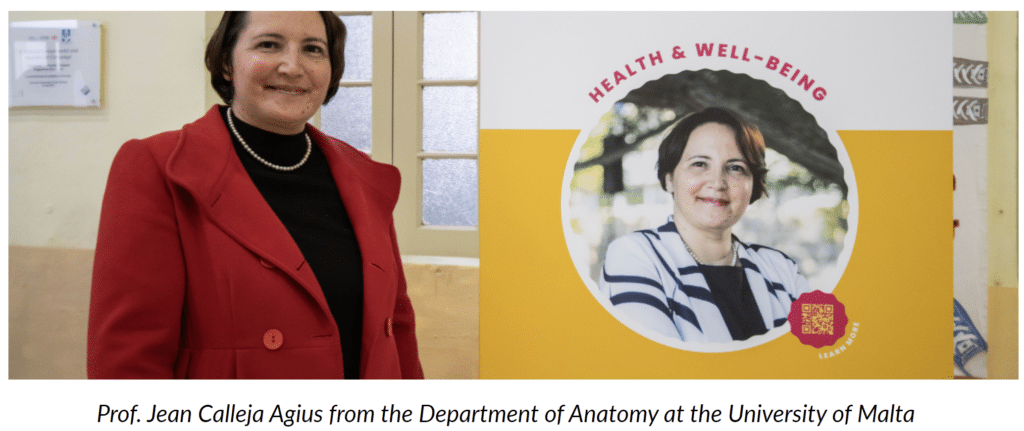GYNOCARE links up with other EU projects in the mission against cancer
The various members of the GYNOCARE COST Action have actively collaborated with other ongoing EU funded projects and has also paved the way for new joint collaborations in the mission against cancer.
Here are a few examples:
Dr Mariela Vasileva-Slaveva, MC member from Bulgaria is also MC member of the ongoing COST Action CA19138 - Lobular Breast Cancer: Discovery Science, Translational Goals, Clinical Impact (LOBSTERPOT). She organised a workshop dedicated to sentinel node biopsy especially in rare gynaecological cancer, during the GYNOCARE Training School held in Sofia University, Bulgaria in June 2023.
Prof Alex Felice and Prof Nikolai Pace, WG2 members from Malta are the focal points for BBMRI.mt, which is the European research infrastructure for biobanking and biomolecular resources in health and lifesciences.
Prof Alex Felice is the founder and custodian of the Malta Biobank. The Malta BioBank is the first national archive of biological samples. It houses a population bank and a clinical bank with specific collections. The population bank has a very large collection of random Maltese neonates, pooled neonatal samples, and samples from multiple births and senior citizens. The Malta BioBank is a founding member of ITHANET (thalassaemia network) Euro-BioBank and RDCONNECT as well as of BBMRI. It seeks to expand the scope of biobanking in Malta and the Euro-Mediterranean region.
Dr Olga Tzortzatou from Greece, WG3 lead and Dr Bridget Ellul WG3 member from Malta and Dr Sara Casati WG3 member from Italy, are representatives of the Ethical, Legal and Social Implications (ELSI) Research Program. The ELSI Research Program fosters basic and applied research on the ethical, legal and social implications of genetic and genomic research for individuals, families and communities.
Dr Vera Dimitrievska, Science Communication Officer for GYNOCARE is also the Vice-Working Group 3 Leader of another COST Action CA21123: Cancer- Understanding Prevention in Intellectual Disabilities (CUPID).
Prof Jean Calleja-Agius is a member of another COST Action CA21152: Implementation Network Europe for Cancer Survivorship Care (INE-CSC).
GYNOCARE MC members have collaborated closely with Prof Francisco Güell Pelayo, project leader B2-Inf. B2-InF is a H2020 Science with and for Society project which aims to give voice to citizens towards improving Assisted Reproduction Technologies (ART) for society. Other members of the B2-Inf consortium included Dr Vera Dimitrievska, Science Communication Officer for GYNOCARE.
Preserving fertility is the most frequently reported concern by young people diagnosed with cancer, yet it remains the least serviced across various health systems in Europe. Traditional cancer treatments are focused on disease cure, however, as cancer survivorship increases, there is increasing awareness and demand for life optimization treatments post cancer cure, such as fertility preservation. Coordinating fertility preservation activities across Europe is a multifaceted endeavour. There is an urgent need to revamp, optimise, and modernise care provision pathways to incorporate fertility preservation treatments into existing health systems. This is particularly relevant to deprived and underserved minority communities who often struggle to access such specialised treatments leading to significant longterm health inequality. Effective networking, knowledge sharing, and stakeholder education is therefore key to invoke a real change beyond the status quo of cancer care provision. In view of this, a number of MC members from the GYNOCARE COST Action have partnered up with clinicians and academics from the UK in order to submit a proposal new COST Action, focusing on fertility preservation in cancer patients.
Prof Jean Calleja Agius has been invited to be one of the role models who are challenging gender stereotypes and traditional roles, while strengthening the support system for girls who wish to pursue a career in the Science, Technology, Engineering or Mathematics fields. A significant step in Malta’s STEM pathways has been the island’s recent recognition as the first World Capital for Women and Girls in Science (Royal Academy of Science International Trust), an international achievement which was catalytic of the need for bigger spaces of dialogue about the potential of young females with an analytical mind and a vivid sense of curiosity. Click here to read more about the She Can project.
